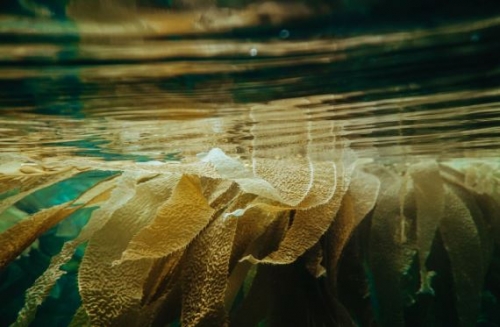Oceans are filling up with almost 8 million tonnes of plastic each year, but they are also teeming with organic material that could eventually put a halt to this trend. Israeli researchers have been working on a new fermentation process to create bioplastics from seaweed.
Oceans are filling up with almost 8 million tonnes of plastic each year, but they are also teeming with organic material that could eventually put a halt to this trend. Israeli researchers have been working on a new fermentation process to create bioplastics from seaweed. In traditional fermentation processes, microbes are fed glucose derived from corn or vegetable oil. Certainly, oil from plant matter is now being viewed as a viable alternative to fossil-fuels in the creation of bioplastics, and interest in the use of plants as sustainable raw material is growing. However, using seaweed is of particular interest to countries such as Israel and China, that are lacking in freshwater and fertile soil in which to grow conventional crops. Scientists are widening the net still further in the search for alternative organic ingredients with unique qualities for replacing plastics, and using sustainable fermentation processes to convert them for a variety of applications.
Replicating Squid Proteins Through Fermentation
Commercial fermentation process development projects each come with unique challenges, using a variety of microorganisms to help produce biofuels and biomass, and more specific purposes such as isolating enzymes or increasing yields of a protein. Researchers from Penn State University looking at the properties of squid have applied a commonly used fermentation process in their quest to create a renewable alternative to plastic. Using sugar, water and oxygen in a process typically applied to brewing beer, they have been able to sustainably replicate the high strength protein of squid ringed teeth in genetically modified bacteria. The protein’s unique properties, one of which enables squid to capture and hold on to their prey, can be further improved to use in elastic materials for smart self-healing clothing or flexible photonic devices.
Designing With Sustainable Sources From The Sea
Other material originally sourced from the sea is made into a wide variety of sustainable products. Lobster shell is produced in vast quantities by food producers and restaurants. As it contains up to 40% of the polysaccharide chitin, lobster shell can be pulverised and mixed with vinegar to create a bioplastic solution suitable for making plastic bags.
Completely decomposable water bottles can be made from the Agar powder derived from algae. When the powder is mixed with water, a bottle can be moulded to hold liquid until it is empty, when it will then start to decompose. However, the reach of alternative renewable plastics doesn’t stop at everyday, practical packaging, bags and bottles. As well as making decomposable products, designers are experimenting with seaweed, algae and crab shells to construct furniture, ornaments and casings for electronics.

By looking to the plastic-filled oceans for inspiration from nature, researchers can find abundant supplies of organic materials suitable for fermentation by bacteria and mixing with other ingredients to create sustainable items. Replacing their plastic counterparts, these can include everyday packaging products, specialised clothing and equipment, and even unique decorative objects.
Source
Bioplastics MAGAZINE, 2019-04-09.
Supplier
Share
Renewable Carbon News – Daily Newsletter
Subscribe to our daily email newsletter – the world's leading newsletter on renewable materials and chemicals









